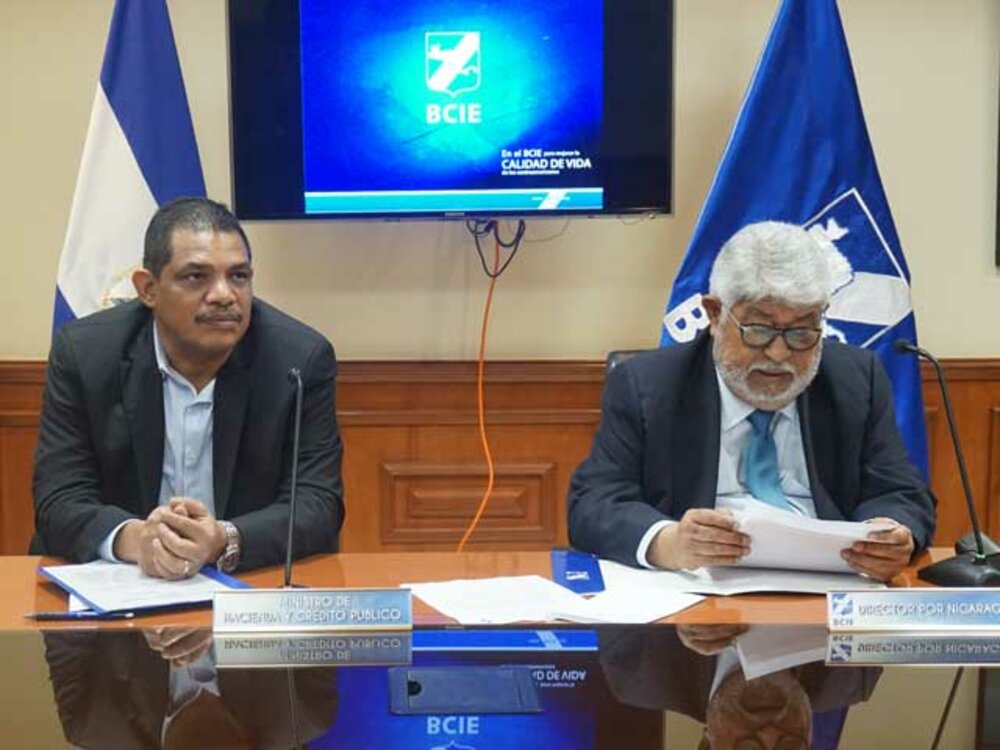US$105.5 million loan for Government of Nicaragua

The CABEI loan will finance the Project, "Rehabilitation of the Juan Pablo II Highway and Construction of Overpasses."
Managua, June 21, 2017. -The Central American Bank for Economic Integration (CABEI) and the Government of Nicaragua signed a US$105.5 million loan to finance the Project, "Rehabilitation of the Juan Pablo II Highway and Construction of Overpasses,” in the Nicaraguan capital.
The project’s total cost is US$255.9 million, which will be co-financed by the European Investment Bank (EIB) with US$129.0 million and the Government of Nicaragua with US$21.4 million, in addition to the US$105.5 million approved by CABEI.
The project involves the rehabilitation and expansion of 9.55 kilometers of the Juan Pablo II highway, which will connect the northern and southern highways. The work will be constructed with hydraulic concrete, providing the highway with 25 years of useful life. The new highway will be composed of four stretches with six lanes, including 5 overpasses, 6 pedestrian bridges, 10 rainwater drainage circuits, a sewer network, potable water, hydrants, lighting systems and storm water drainage for the Oriental and Cuaresma channels. The project’s executing organization will be the Municipal City Hall of Managua (ALMA).
45 years after the earthquake of 1972, the Juan Pablo II highway will be the first representative scale project to be carried out in Managua. The project will have a multiplying impact on the development of the city and the country in general. In addition to contributing to the regulation of vehicular traffic, the project will provide the city with greater competitiveness by reducing transaction times and costs.
Labor and business productivity could increase as work centers become more easily connected. Greater connectivity in the city will promote private investment and also benefit Central America’s integration process. Due to the magnitude of the investment and its multiplier effects, the Project represents a significant additional public investment effort, which will strengthen the process of maintaining macroeconomic stability through sustained growth, which will in turn generate economic activity, employment and poverty reduction.






